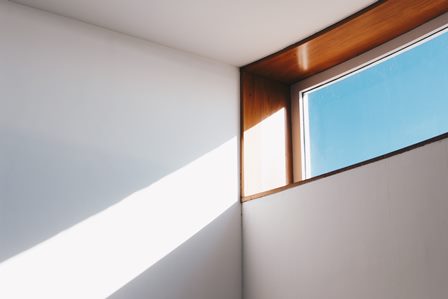
(Photo by Joao Jesus)
I just got through reading a Houzz.com article about stepping back and leaving certain spaces alone, from a design stand point. This also appeals to my organizing sensibilities. Not every nook and cranny needs to be filled or used functionally. The article also reminded me of times when clients asked my opinion about placing art on the walls, and I was compelled to mention that the view from the windows was already an existing kind of “framed art.” These kinds of questions often come from people wanting to bring more color into a room, where the subject contained in the art work is not even the focal point.
When someone first learns Feng Shui, there is a tendency to want to address every square foot of space. But this is a beginner’s approach, since there is a definitive hierarchy in which areas to address first, middle and last. There are also many spaces, whether used frequently or not, which are inherently balanced and not in need of any change.
The balance and interplay of yin and yang aspects to a space is partly subjective. A room might seem dull or bland to one person, but more like a simple retreat to another. Playing with light and dark, objects and emptiness, each room will dictate its own needs, to a certain extent. For example, people often ask me if there is an ultimate Feng Shui recommended shape to a dining room table. There isn’t. I always say that the table just needs to be not too large for the room, so that people can pass effortlessly around the table.
Once an area has passed the check-list of Yin and Yang attributes, then there are unseen influences which must be calculated, based on time of initial construction and the compass orientation of the room or whole structure.
Statistically speaking, each house will have at least a couple of areas of the floor plan which are inherently good or neutral zones, which do not need any of the popular “remedies” you may have hard about, such as adding a water feature or something representative of the fire element.
And in case you are wondering, most people do in fact feel naturally comfortable in the better Feng Shui parts of their home. We pick up on that energy, consciously or not, most of the time.
Another occasion in Feng Shui observations when we just leave things alone is when there could be a negative side effect to making a change. There are plenty of instances where an adjustment could improve someone’s ability to attract wealth, but at the expense of health. Or we could have a situation where relationships could be improved, but only by risking income potential. Sometimes we just let the cards fall as they may and not “trigger” or try to jump-start energies which might otherwise just be dormant.
Author: Kartar Diamond
Company: Feng Shui Solutions (R) since 1992
From the Feng Shui Theory Series
